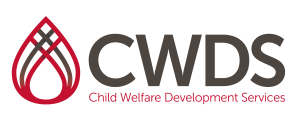CWDS Curriculum
Engaging Non-Voluntary Clients
Level: Advanced Practice – Lineworker, Supervisors
Credits: 6
Intended Audience: This training is appropriate for experienced professionals or volunteers who work with unwilling, reluctant or resistant clients. Workshop content is applicable to work with both adults and children/young people. Supervisors will be able to adapt the workshop content and principals to their work with employees who share the features of resistance and denial when asked to work through problems in the workplace.
Intended Objectives:
- List specific categories of incentives for willingness to engage in a relationship working toward change
- Describe the predictable paths in the process of change
- List the different types of change and the accompanying differences in initial motivation
- Provide example of how anxiety affects the ability to understand explanations
- Define the features of personal crisis and their relationship to engaging in unwanted, unplanned change
Topics Include:
- Truths and myths about the need for voluntariness for help to be effective
- Incentives for change
- Predictable paths through change
- Unplanned/involuntary change and experiences of “crisis”
- Using the Johari Window to illustrate opportunities and skills for engaging clients
- Confronting resistance
- The role of assertiveness in modifying dysfunctional coping patterns
- Using creativity to work through non-traditional challenges
CalSWEC Competencies Addressed:
1.2 Student demonstrates the ability to conduct an ethically and culturally sensitive assessment of a child and family to develop an appropriate intervention plan.
2.1 Student is able to identify the multiple family and social forces contributing to child abuse and neglect.
2.7 While incorporating knowledge of individual, family, and cultural dynamics, the student recognizes signs and symptoms of substance abuse in children and adults and is able to assess its impact.
2.8 Student understands the dynamics of family violence, and can develop appropriate, culturally sensitive case plans to address these problems.
2.16 Student understands and can appropriately utilize authority and power in professional relationships.
2.17 Student demonstrates the ability to assess his or her own emotional responses to clients, co-workers, and situations in which the worker’s values are challenged.
2.18 Student demonstrates the ability to engage and work with involuntary clients.
3.5 Student demonstrates understanding of how the strengths perspective and empowerment approaches can influence growth, development, and behavior change.
7.1 Student demonstrates the ability to assess the effects of family transitions and the impact of becoming a client of the child welfare system.
Posted In:Engagement & Interviewing



